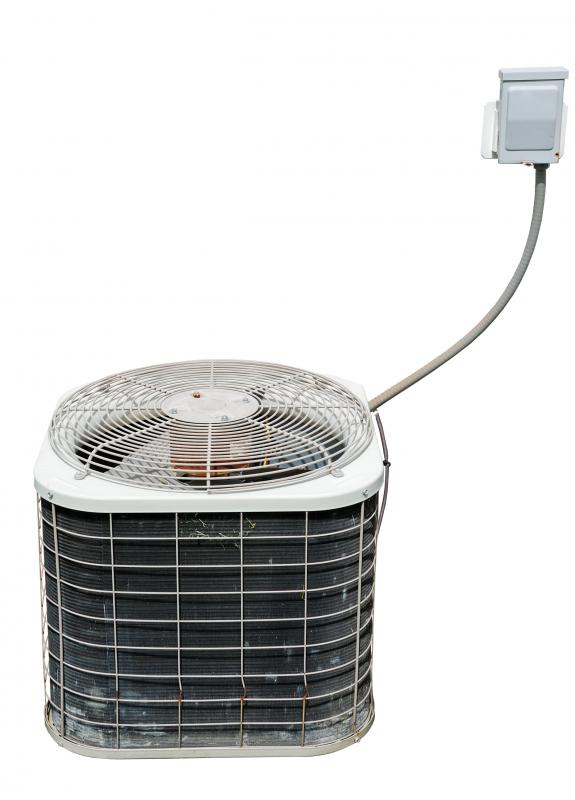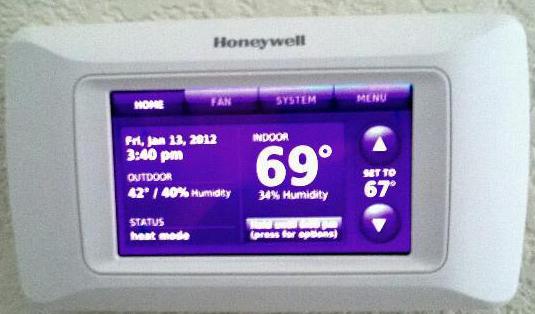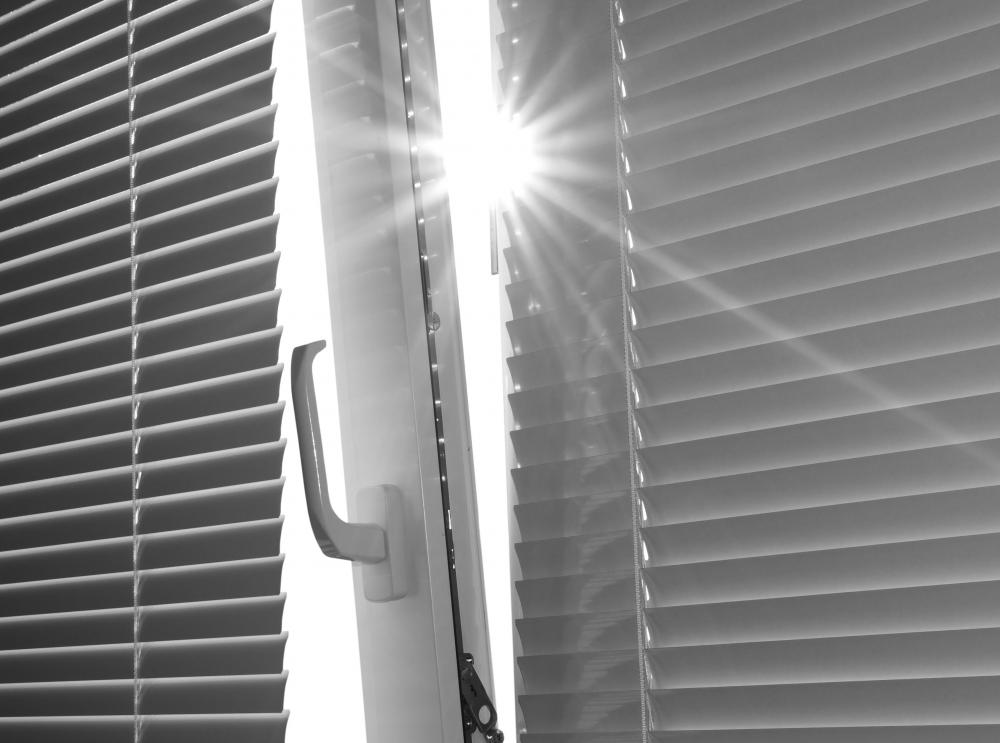At HomeQuestionsAnswered, we're committed to delivering accurate, trustworthy information. Our expert-authored content is rigorously fact-checked and sourced from credible authorities. Discover how we uphold the highest standards in providing you with reliable knowledge.
How Much Energy does Air Conditioning Use?
Air conditioning has come a long way since its first appearance on the market as a cooling device for buildings and homes. In the year 2000, air conditioners used from 30% to 50% less energy than models manufactured in the 1970s. With newer models, makers have found ways to design them for better efficiency.
Before talking about the amount of energy used up by air conditioning, it is important to know how they work. An air conditioner works in a similar manner to a refrigerator, in that a pump and a circuit of tubes create the cooling system. Inside the device is serpentine tubing, often composed of copper, that winds into two types of coils, evaporator coils and condenser coils. The cold, indoor evaporator coil cools the room while the hot, outdoor coil releases heat outside. The collected heat that is expelled is a result of the energy running through the machine as it does its job.

Also inside the air conditioner is a pump also known as a compressor. This pump moves a heat transfer fluid, called refrigerant, between the condenser and the evaporator. Both kinds of coils are surrounded by aluminum fins, and the compressor forces the heat transfer liquid through the series of tubing and fins. The liquid evaporates when it hits the evaporator, drawing heat out of the indoor air, resulting in the perceivable decrease in room temperature. This gaseous refrigerant is then pumped to the condenser, where it condenses into a liquid again, expelling heat.

Ratings for air conditioning run by the number of British Thermal Units (BTU) an air conditioner can remove per hour, with 12,000 BTU equaling a ton. The energy-efficiency rating is measured by dividing the BTU per hour by the number of watts the air conditioner consumes. The final number is the Energy Efficiency Ratio (EER), which is used to characterize the efficiency of the system; that is, a higher number means better efficiency. In the US, all air conditioners being manufactured today must sport an Energy Guide Label somewhere visible on the machine. In general, a more expensive air conditioner carries a higher EER, which is a worthy initial investment considering its frequent utilization and lower electricity consumption rate.

A regular air conditioner for the home usually has a 5,500 BTU to 14,000 BTU per hour range. Room air conditioning devices built after 1 January 1990 have been subject to US national appliance standards of an 8.0 EER. The hotter the climate a home is in, the higher EER is recommended to be. As a result, homeowners living in homes in hot climates should seek to purchase an air conditioner with at least a 10.0 EER.

People who have air conditioners in their homes can cut down on energy costs by turning the system on only when there are people at home. Air conditioners cool the air fairly quickly, so they should only be turned on when necessary. Homeowners should keep drapes or blinds closed on the windows that face the sun, which reduces the amount of solar heat entering rooms. It is also a good decision to install a programmable thermostat, so that the home is cooled on a routinely basis and saves the homeowner the trouble of manually turning it off and on every time he leaves and comes home.
AS FEATURED ON:
AS FEATURED ON:
















Discussion Comments
It takes less energy to set the thermostat at a reasonable temperature, 78 degrees or above, and leave it there, than it does to turn the AC up or off during the day when no one is home. It takes more energy to try to cool down a warm house than it does to just let it run during the day.
Our AC is set at 78 during the hot months, even when it's 105 outside, and we are comfortable inside. Our electric bill is very reasonable compared to others who keep their thermostats lower.
If I am visiting someone who sets their thermostat lower, I am extremely uncomfortable; it's just too cold. (And I am generally more warm-natured than others, so I don't know how they can stand the colder temperatures.)
Conference rooms in hotels are notoriously too cold. They set the thermostats at 68 degrees, everyone is turning blue and needs sweaters to keep warm. I have never been at a conference in a hotel where the temperature was comfortable.
Living without air conditioning during the summer is possible, with just a little self-control. The money-saving potential is obvious, and you also know you want that.
@ Parmnparsley - I feel your pain. I have an outdated A/C unit in my home as well. I am hoping to replace it within the next couple of years but new units are expensive. I did get a few tips from the heating and cooling technician the last time that I had the system serviced. He told me that changing the filters twice as often will prevent lint from building up on the coils and fins. Make sure to use high quality filters as well. I was also told that it is a good idea to have the vents cleaned at least once a year. Anything that prevents dust and lint from building up on the unit is good because these types of contaminants act like an insulating blanket; making the unit work much harder. Lastly I was told that it was best not to turn the unit completely off when I leave home. I was told that the best thing to do is to set the unit to 80 or 85 degrees. By keeping the base temperature somewhere between the outside temperature and a comfortable indoor temperature, the unit will not have to work as hard to cool the house when I get home. It also does not have to work very hard to maintain that 85 degree base temperature.
I should bring this article to my HOA. The condo I live in has an HVAC unit from 1990. I don't pay the electric costs for the HVAC unit directly; rather it is included in the HOA fees. I live in Phoenix and it gets very hot in the summer. During monsoon, the HVAC tends to ice up and then I have to have it serviced. The A/C unit freezes at least twice a year, and it can make for a very uncomfortable situation when the temperature stays above 100 degrees night and day. I keep telling the HOA that the units are very inefficient and should be replaced. Instead they send notices informing residents that they are raising HOA fees because they are spending too much money on air conditioning. It would be so much simpler if the homeowners were allowed to service and control their own HVAC units. Instead we are stuck paying for the inefficiencies created by outdated ac units in the other 100 or so condos in the development. Oh the frustration!
Post your comments